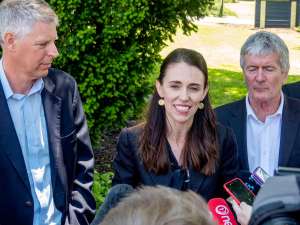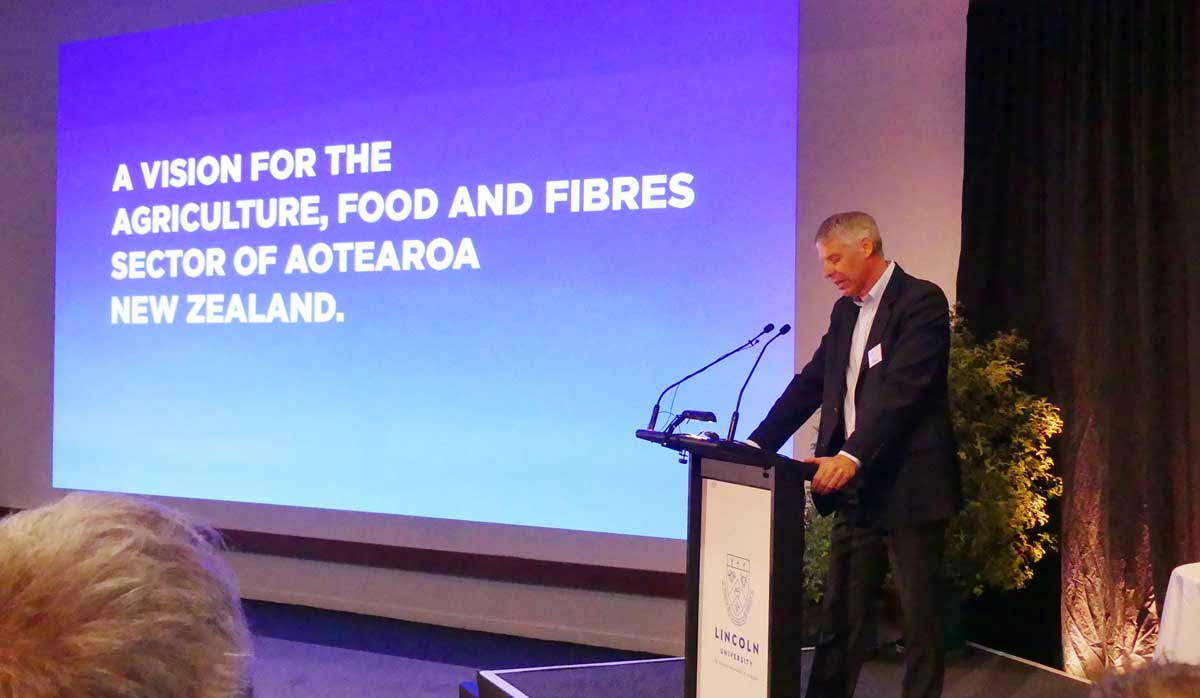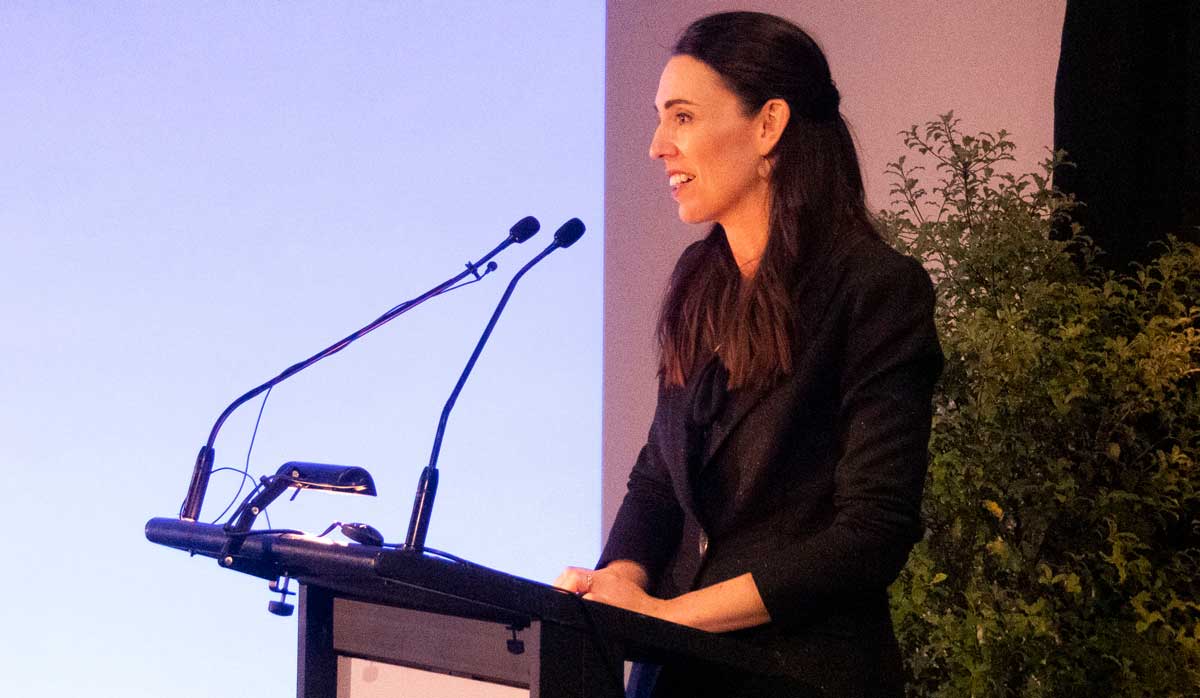Bright future for primary sector
A primary sector think tank believes it's incredibly important for the NZ sector to grow exponentially and a big focus should be on developing exports in the 'wellness' space.
 (L-R) PSC chair Lain Jager, Prime Minister Jacinda Ardern, and Agriculture Minister Damien O'Connor.
(L-R) PSC chair Lain Jager, Prime Minister Jacinda Ardern, and Agriculture Minister Damien O'Connor.
The Primary Sector Council (PSC) has unveiled its vision for the future of New Zealand’s primary industries.
It centres on the Māori concept of Taiao, which emphasises respect for, and harmony with, the natural world.
The council was established by Agriculture Minister Damien O’Connor in April 2018 on a two-year mission to provide strategic advice on issues and to develop a sector-wide vision for the future.
It presented that vision, entitled “Fit For a Better World,” last week in a high-powered launch at Lincoln University attended by O’Connor, Prime Minster Jacinda Ardern and a lecture theatre full of sector leaders.
PSC chair Lain Jager said the vision was intended as an anchor for strategy and investment, and a guiding star for decision-making.
“It's a pathway to sustainable prosperity, sector confidence and the social license we badly need in the context of the global challenges that confront us.”
Jager explained that council member Miriana Stephens, of the Māori-owned agribusiness Wakatu Incorporation, had introduced the council to the concept of Taiao, which describes a deep relationship of respect and reciprocity with the natural world.
“We propose that Taiao can be a distinctive guiding star for our agriculture food and fibre sector and therefore it sits right at the heart of our vision,” he said.
“If we are to embrace Taiao and capture the potential economic benefits of this way of thinking and behaving, we need to maximize the productive potential of our catchments and farm within safe environmental limits. That means a relentless focus on developing modern scientifically informed and technology supported regenerative production systems.”
 |
|---|
|
PSC chair Lain Jager at the launch of the new vision. |
Jager said the council recognised concerns for the global environment, but the sector was already heavily engaged in the transition to environmental excellence and this must continue. As part of the effort, it was important to have a common framework and language describing our relationship with nature, which Taiao would provide.
Jager claimed “Fit For a Better World” was a uniquely New Zealand positioning, encapsulating Taiao as the guiding principle and delivering products through ethical and regenerative farming systems.
O’Connor welcomed the release of the vision.
“The international consumers who buy our world-class product increasingly want to know the story behind their food. They want to know it’s climate friendly and sustainably produced, with high animal welfare standards and by a workforce that’s treated with respect and paid fairly.”
 |
|---|
|
Prime Minister Jacinda Ardern was also at the launch. |
O’Connor said NZ farmers and growers produce some of the highest quality food and fibre in the world but must adapt to our consumers’ changing needs.
“I established the Primary Sector Council to provide fresh thinking and develop a vision to help sectors navigate the environmental and sustainability challenges it faces.
“The council’s engagement with Kiwi farmers, growers, fishers, makers and crafters has resulted in a vision which the sector can rally around.”
O’Connor said the council’s final report and recommendations are expected in March 2020.
“The next step is taking the vision and turn it into a realistic and workable plan.”
To enable this, he has established a new body called Food and Fibres Aotearoa New Zealand.
“It will involve government, industry and Māori working together to deliver meaningful change.”
The Meat Industry Association of New Zealand (MIA) today announced that Chief Executive Officer Sirma Karapeeva has resigned from the role.
The winners of the 2026 Hawke’s Bay/Wairarapa Dairy Industry Awards were announced at the annual awards dinner held at Copthorne Solway Park in Masterton on Thursday evening.
Environment Southland is welcoming this week’s decision by the Environmental Protection Authority (EPA) to approve the release of Blaptea elguetai, a leaf‑feeding beetle that will help control the highly invasive Chilean flame creeper.
This March, the potato industry is proudly celebrating International Women’s Day on 8 March alongside the International Year of the Woman Farmer, recognising the vital role women play across every part of the sector — from paddocks and packhouses to research, leadership, and innovation.
Fruit trader Seeka posted a record profit and returns to shareholders in 2025.
Recent weather events in the Bay of Plenty, Gisborne/Tairawhiti, and Canterbury have been declared a medium-scale adverse event.

OPINION: A mate of yours truly reckons rural Manawatu families are the latest to suffer under what he calls the…
OPINION: If old Winston Peters thinks building trade relations with new nations, such as India, isn't a necessary investment in…